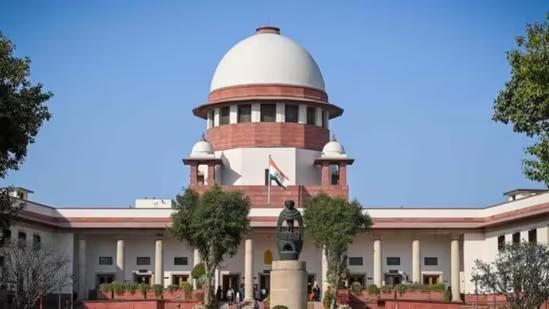
Court Can’t Grant Assent to Bills, Only Guv & Prez Can: Maha to SC
The age-old debate surrounding the powers of the Governor, President, and the courts has once again taken center stage in the Supreme Court. The Maharashtra government has made a bold argument in the apex court, stating that courts cannot accord assent to bills and only the Governor and President have the constitutional authority to do so. This comment was made by Senior Advocate Harish Salve, representing Maharashtra, during the hearing of a presidential reference on whether the court could impose timelines for the Governor and President to deal with bills passed by state Assemblies.
The presidential reference was initiated by the Centre, seeking the Supreme Court’s guidance on the matter. The reference was triggered by a disagreement between the Centre and the Maharashtra government over the Governor’s role in dealing with bills passed by the state Assembly. The Centre had claimed that the Governor was not obliged to give assent to bills and could instead send them back to the Assembly for reconsideration.
However, the Maharashtra government has taken a diametrically opposite stance, stating that the Governor and President are the only constitutional authorities empowered to grant assent to bills. Senior Advocate Harish Salve, representing Maharashtra, argued that the court cannot assume the role of the Governor or President, and that it is the Governor and President who have the discretion to decide whether to give assent to a bill or not.
Salve further argued that if the court were to impose timelines on the Governor and President, it would be equivalent to usurping their constitutional powers. He cited several judgments of the Supreme Court, including the landmark judgment in the case of Union of India vs. West Bengal, where the court had held that the Governor’s role is that of a “constitutional head” and not a “ceremonial head”.
The Maharashtra government’s argument is rooted in the Constitution, which vests the power to assent to bills in the Governor and President. Article 111 of the Constitution empowers the President to assent to a bill passed by both Houses of Parliament, while Article 200 empowers the Governor to assent to a bill passed by the state Assembly.
The court’s role, as per the Constitution, is limited to ensuring that the Governor and President exercise their powers in a fair and transparent manner. The court cannot substitute its own judgment for that of the Governor or President, and it cannot impose timelines on them.
The Maharashtra government’s argument has significant implications for the functioning of our constitutional democracy. If accepted, it would mean that the Governor and President would have unfettered discretion to decide whether to give assent to a bill or not, without being bound by any timelines or deadlines. This would ensure that the legislative process is not hurried or pressured, and that the Governor and President have sufficient time to deliberate on the merits of a bill.
On the other hand, if the court were to impose timelines on the Governor and President, it would undermine their constitutional powers and create a situation where they are compelled to act in a certain manner. This would be inconsistent with the principles of constitutional governance and would undermine the independence of the Governor and President.
The Supreme Court’s decision in this matter is likely to have far-reaching implications for the functioning of our constitutional democracy. The court’s verdict will determine the extent to which the Governor and President can exercise their powers in relation to bills passed by state Assemblies, and will set a precedent for future cases involving the relationship between the executive, legislature, and judiciary.
In conclusion, the Maharashtra government’s argument that courts cannot accord assent to bills and only the Governor and President have that power is a significant one. The Supreme Court’s decision on this matter will have far-reaching implications for the functioning of our constitutional democracy, and will determine the extent to which the Governor and President can exercise their powers in relation to bills passed by state Assemblies.






